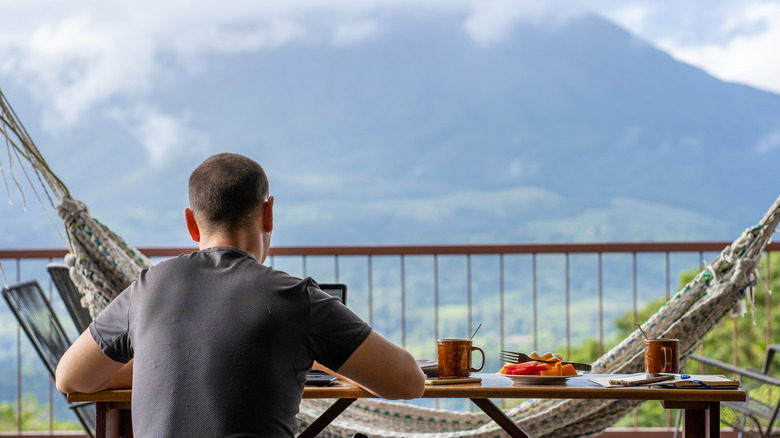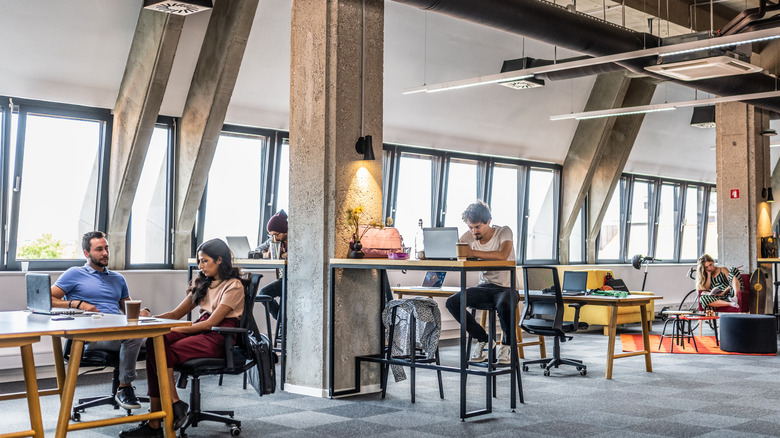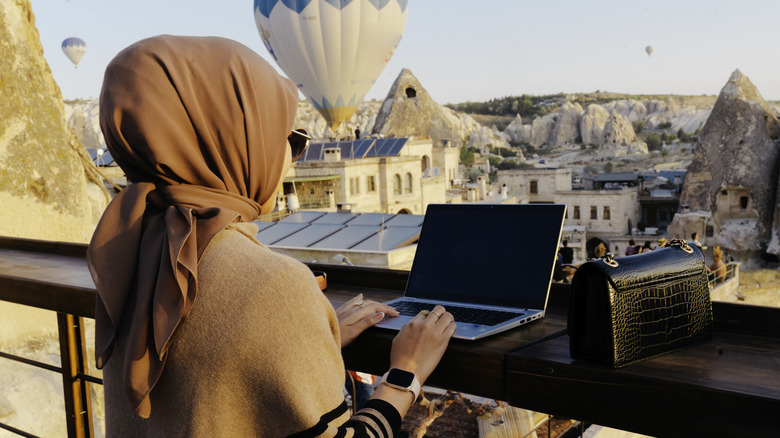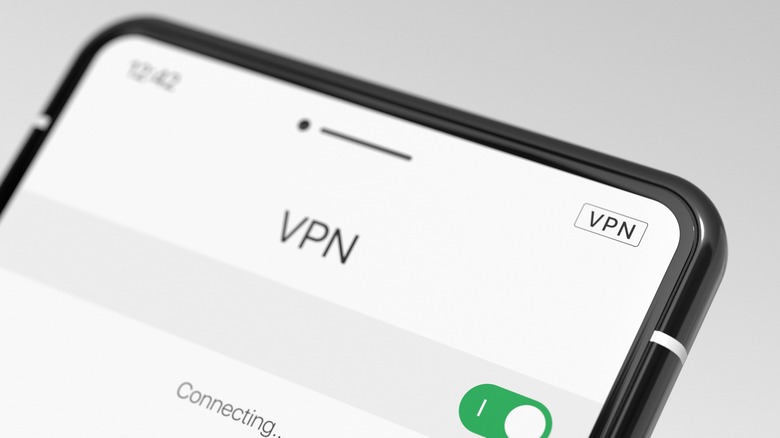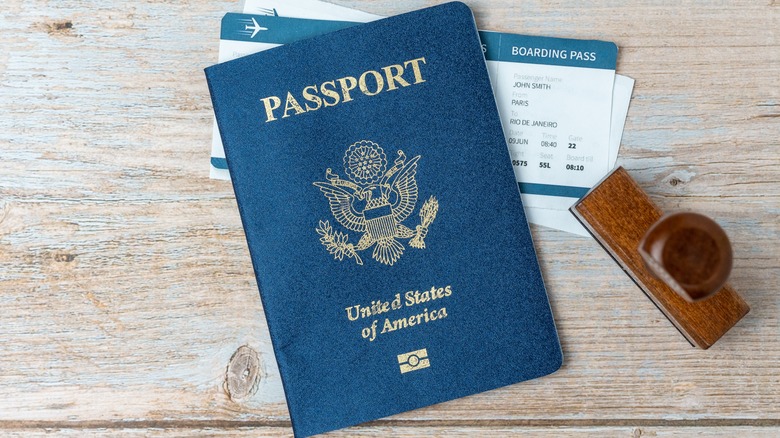Your Guide To Working Remotely While Traveling
Are your dreams of an exhilarating, freeing, and rewarding new life on the road pushing you to finally take the leap toward working remotely and from anywhere in the world? You're not the only one — the number of digital nomads around the globe increased from 10.9 million in 2020 to 35 million in 2023 (up 220%), with a whopping 16.9 million coming from the U.S. alone. Working remotely while traveling offers ample opportunity to connect with people from all walks of life, explore breathtaking new landscapes, and embrace a flexible work-life balance.
But before your plans take shape, it's super important to do the groundwork first. From internet connectivity to finding your community and picking the right destinations to work from, this lifestyle isn't without its unique set of tests and considerations. And that's where we come in. Our handy guide (full of tips and tricks) can support you with all the tools needed to troubleshoot future challenges and help you set the stage for a truly unforgettable adventure. All that's left is to make sure you stay open-minded, adaptable, and willing to learn from your experiences along the way, and we guarantee you'll have the time of your life.
Bag the right remote job
To squeeze all the best bits out of this lifestyle, you need to get yourself the right job. But how? Thankfully, there are a bunch of roles ideally suited to remote workers. We're talking about tech jobs, or those in the arts and creative space, such as computer engineers, software developers, recruiters, writers, editors, graphic designers, web designers, transcriptionists, translators, data entry clerks, and accountants.
What most of these roles have in common is the ability to work 100% remotely and without much contact time in the form of meetings. This gives you real flexibility in terms of the hours you work but doesn't pigeonhole you into one specific time zone. As a digital nomad, this is imperative for the life you're looking to lead — remember, you want to have the freedom to work from and travel to any destination your heart desires, if possible.
The majority of these jobs are also project-led, meaning that once you've finished your tasks, you can usually clock off for the day. As you can imagine, this works wonders for motivation and productivity levels! Finally, it helps to find a job that's not overly demanding. After all, one of the biggest selling points of digital nomadism is the chance to experience new cultures and places. But without a healthy work-life balance, you'll surely miss out on this.
Pick your destination wisely
The digital age allows us to work from anywhere, but picking the right "anywhere" can make all the difference. Before researching the best international destinations for remote workers, think about the environment you need to thrive in. Do you love art? Maybe Buenos Aires or Florence is calling. The weather can have a significant bearing on proceedings, too. So, if you love the tropics, perhaps a remote Indonesian island is your best bet. Is mountain air more your thing? Consider India's Dharamshala or Bansko in the Pirin Mountains of Bulgaria. Speaking of the elements, keep an eye on weather patterns when it comes to the risk of thunderstorms, hurricanes, and typhoons.
Wi-Fi is up next — you might be on the other side of the world with the most idyllic view of snowy mountain ranges, but if your internet connection keeps dropping out, good luck getting any work done. Avoid this nightmare by looking into online reviews from other travelers or ask the host or receptionist to send you an internet speed test before booking.
Perhaps the biggest consideration, though, is the cost of living. Singapore, Tokyo, and any of the Scandinavian countries, as well as Switzerland and U.S. cities like San Francisco, are notorious for being expensive. But many stops in Southeast Asia, like Hanoi, Bali, Chiang Mai, and Bangkok, are much more affordable, alongside countless cities in Latin America like Antigua, Medellin, and Mexico City.
Assemble your tech
You can't set yourself up as a serious remote worker without having a reliable computer or a laptop. It should be light enough to carry around on your travels but have all the features and functionality needed to perform well. You might be tempted to save as much money as possible here, but don't be afraid to fork out a little more for quality and a model you can trust to deliver the goods. Remember, it's an investment and will be worth the extra bucks in the long run. The alternative? Ringing your insurance provider every other week because your laptop is malfunctioning again. We know which scenario we'd prefer.
If you have more of a creative role like running a podcast, are a graphic designer, or someone who shoots videos, extra equipment will be in order. This could look like microphones, lights, video cameras, a special mouse, expert software, and noise-canceling headphones, among other things. As you'll be carrying it around from place to place, focus on getting hold of the lightest models available, but not if this means losing out on quality. That reminds us. An up-to-date smartphone can be a lifesaver, too. The two-factor authentication for your phone and computer can stop you from getting locked out of your accounts. It also provides a useful internet hotspot if you are scrambling for a connection one day.
Be picky about accomodation
Co-working spaces, co-living communities, open-plan hostels, or rental apartments with working areas are great for balancing work and play. It means you can get your projects done while making the most of socializing with like-minded people — and this is vital. While there are plenty of upsides to the digital nomad life, you might feel a bit lonely at times, especially if you like to move around frequently.
Do you prefer to stay in a private bungalow or apartment for added privacy but are worried about isolating yourself? Go to cafés and local libraries for your working days instead — both often provide free WiFi and a unique chance to engage with others. Our last tip for scouting out the perfect living quarters is to read through other travelers' experiences on accommodation websites. You'll find everything you need to know about a place in the reviews section on Booking.com, Hostelworld, or sites like Airbnb. The latter also has a unique filter you can select when it comes to dedicated working spaces.
Select your budget style and track your expenses
It's not the sexiest aspect of life as a remote worker, but setting and tracking your budgets daily is one of the most important. The first thing you need to do is choose your budgeting style — maybe the 50/30/20 method appeals to you, which means dividing your monthly income after tax into three clear areas. For this, 50% is used for needs, 30% is spent on any wants, and 20% goes to your savings. The zero-sum method is a slightly different style and is popular among other nomads. It means putting every ounce of your paycheck toward something — such as a portion into your savings accounts and investments, with the rest allocated to things like Airbnb stays, transport, food, sightseeing, and other expenses like visas.
And when it comes to keeping tabs on your spending, wave goodbye to those drab Excel spreadsheets and say hello to the world of budgeting apps. One of the best is TravelSpend, which even has a free version. It's perfect for setting your budget, monitoring your spending, and giving you an average daily output. It also breaks down each expense into categories like accommodation, transport, and groceries, so you can see where most of your money is going at a glance. What's more, you can set up a separate budget sheet for each location you visit, meaning you can compare overall costs wherever you go.
Get comfortable with the unknown
If the remote worker lifestyle appeals to you, you're likely open about where your journey might take you. The best advice is to fully embrace this freedom and relax about your ever-changing schedule. After all, it's what keeps things interesting. So, if you know you like to be super organized and have everything all mapped out, give yourself a little wiggle room in the flexibility department.
You could try planning your work and social life weekly instead of months in advance. That way, if you come down with an illness, there's a power cut, or your flight gets canceled, you can be nimble, agile, and go with the flow a little bit. This might look like having a rough idea about what days you'll work in the week but being flexible and adaptable if plans change. Above all, you want to feel like you can deliver on all your work projects while making the most of the incredible new digs you find yourself in.
Try to establish a routine amid all this instability, though, no matter how small. Why not make a point of cooking your favorite breakfast every morning, setting a regular slot each week to have FaceTime calls with friends and family back home, or meditating before you sleep every night? It'll look different to everyone, but the important thing here is to find little ways to keep yourself grounded.
Learn about local cultures, customs, and languages
If you're planning to live and work in a new spot for a while, it makes sense to keep the local people onside. Besides, immersing yourself in a new culture can be hugely rewarding. You can do this by looking into specific rules and customs before you arrive. For example, eating with your hands in India, knowing the types of gifts you should avoid giving someone in China, and steering clear of certain topics of conversation in Rio de Janeiro are all super important things to be aware of. Oh, and don't assume everyone can speak English, either. Instead, make sure you can say a few phrases in the local language like "hello" and "thank you" — this will go a long way with locals. Feeling shy? Ease yourself into things by practicing these words when you go in and out of convenience stores or cafés.
The same can be said for dress codes — you'll want to wear modest clothing in most of Asia, especially in and around mosque or temple areas, to show your respect. So, pack items like trousers or longer-sleeved tops ahead of time. It's best to avoid drawing attention to yourself in countries with high crime rates like Brazil. This means leaving expensive apparel and jewelry at home and embracing your casual wardrobe.
Prioritize your health and safety
It's your responsibility to understand all the medical risks before you leave your home country. Still, a nurse can give you a heads-up about any vaccinations you should receive or medication (like malaria tablets) you should take. It's a good idea to pack a stash of oral rehydration salts, paracetamol, and other first-aid supplies, too. These are usually available to buy abroad, but if you need them urgently, it's great to have an emergency kit in your bag.
Next up, don't go anywhere without a solid travel insurance policy. It's true that digital nomad options can be more expensive, but they cover you for most issues you might come up against while working abroad, including a broken or stolen computer. Sure, you can follow all the tips for keeping your laptop safe when traveling, but taking out an insurance policy from the likes of World Nomads or SafetyWing will give you absolute peace of mind.
From a security point of view, consider using a dependable and efficient virtual private network (VPN) as well — something like NordVPN. It encrypts your data, bolsters security, and can grant you access to content and websites that may be blocked wherever you are, such as internal work portals you need for your projects. Not to mention streaming platforms for watching your favorite shows and social media channels for keeping up to date with friends.
Find your work-life balance
The joy of this lifestyle is the balance between work hours and wanderlust moments, so make it work for you. That means creating a schedule that allows you to explore your surroundings while meeting your work responsibilities. After all, what's the point of being in a beautiful place if you don't have the time to enjoy it? This is where finding the right role benefits you in spades — ideally, you should pick something that's fulfilling, pays the bills, and isn't too demanding. But even if you've got the work part right, it's still possible to overstretch yourself by playing or exploring too hard, especially when there are so many new people to meet and gorgeous spots to explore.
With this in mind, try to travel slowly or slower than you would if you were backpacking or on a city break. A good rule of thumb is to spend at least a few weeks in one place. Another way to balance things out is to take the occasional Friday off and enjoy a long weekend exploring nearby sights. For this, work out what's on your hit list when you get to each new destination and accept that you probably won't be able to see or do everything — unless you're planning on staying for months on end.
Network to find your community
The unique combination of freedom and adventure is the biggest appeal of digital nomadism, but maintaining this lifestyle means spending most of your time away from family and friends back home. For this reason, it can sometimes feel like a solitary journey (remote work loneliness is real), especially when you first arrive at a new place. But that's why it's essential to build a network of good people around you as quickly as possible.
First, do your homework and look into online resources for where you plan to settle next. Are there digital nomad or remote worker communities and forums you can check out? Look to social media groups on Facebook, hashtags, or lists on X, formerly known as Twitter, WhatsApp groups, or even Instagram. Each of these examples is a great facilitator for local meetups with other digital nomads and spaces for advising about what's good to do in the area. Or you could choose to stay in a co-working space, allowing you to work and socialize with others in the same boat as you. Aside from this, it's never a bad idea to chat with locals in cafés, bars, restaurants, and shops to build even more of those all-important connections.
Don't forget the legal bit
As a digital nomad, you'll want to make sure you dig into each prospective location well before you arrive. Get into the habit of checking government websites for any legal considerations you need to factor into your plans. Some of the questions you should seek answers to include: How long are you allowed to stay in the country? Do you need to provide proof of onward travel? Do you require a visa to enter the country? And if you're planning to work remotely, do you need a work permit to earn money as a digital nomad? Then, there are vaccination and passport requirements.
Some countries have restrictions on remote work, for example, and you need to make sure you comply with these to stop yourself from getting into trouble. On the other hand, plenty of others now offer specific programs for digital nomads, like Canada's new remote work visa, as well as similar options up for grabs in Croatia, Indonesia, Costa Rica, Spain, and Dubai.
Have multiple backup plans
Digital nomadism has its many ups and a few downs. We hope things run as smoothly as can be for you, but at some point along your journey, there's bound to be at least one situation that leaves you a bit worse for wear. That's why it's so important to have a series of backup plans — instead of being completely floored by a freak accident or a blunder on your part, you can troubleshoot your way through these issues without too much difficulty.
For starters, keep one debit or credit card separate from the rest. If your wallet or cardholder goes missing, you always have access to your money when abroad. Get yourself an Apple AirTag (or two) for your luggage, as well. As a nomad, you'll be transporting the equipment needed to do your job often, whether on flights, buses, taxis, or trains, and these lifesavers can help you keep tabs on all of your belongings. Having a portable WiFi device isn't a bad idea, either. It means you can always get online and carry out your duties, no matter where you are.
Plus, it's a good idea to print off two paper photocopies of your passport just in case the real one goes missing. Make sure you're constantly backing up your work devices, too. Many use Google Suite, which automatically saves documents, photos, slides, and spreadsheets, but investing in your external storage device wouldn't hurt.


